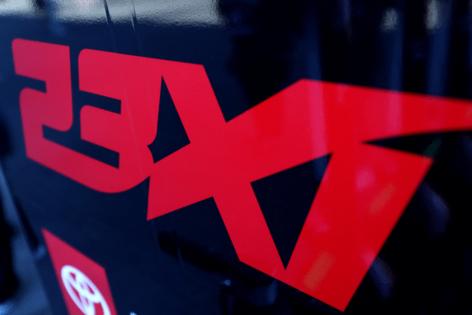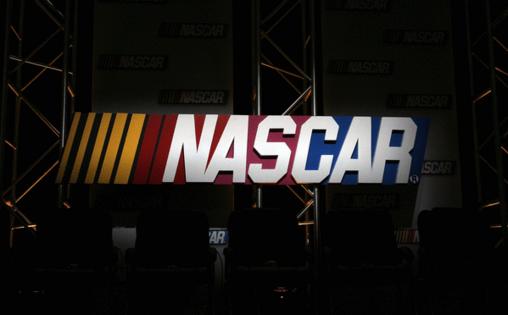Judge denies 23XI, FRM's charter request in win for NASCAR in lawsuit
Published in Auto Racing
CHARLOTTE, N.C. — NASCAR secured a win in its ongoing legal battle with two of its teams Wednesday.
In a ruling filed by district judge Kenneth Bell, the court has denied the preliminary injunction request made by 23XI Racing and Front Row Motorsports — a request for maintaining the teams’ respective charter statuses through the end of the 2025 season, until the antitrust lawsuit is ruled upon in December.
The news means that 23XI and FRM will not receive the payouts that chartered teams do for the rest of the Cup Series season, which runs until early November. And according to a letter sent to teams by commissioner Steve Phelps and obtained by The Charlotte Observer, that number is substantial: Through the first 20 races of the season, 23XI Racing and FRM earned over $25 million in “fixed owner payments and performance payments.” Open teams reportedly make 20% to 30% of what chartered teams make on race day.
Wednesday’s nine-page ruling says that the denial was “based on the absence of irreparable harm” if the teams weren’t granted charter status.
“Plaintiffs assert that an immediate Preliminary Injunction is needed to ameliorate the consequences of no longer operating as a ‘chartered’ team,” Bell wrote. “Also (and more importantly they say), they seek to prevent NASCAR from moving forward with its plan to sell their former Charters to other racing teams, which Plaintiffs claim will for all practical purposes end their existence as a realistic competitor in NASCAR’s Cup Series.”
The judge goes on to say that NASCAR has responded to those claims by guaranteeing the entry into all the final races thanks to a rule change — among other voluntary commitments, including agreeing to leave six charters untouched until trial commences. NASCAR continued that “any monetary harm and risk of driver or sponsor defections is either not irreparable harm or is unrealistic this late in the issue,” with which Bell ultimately agrees.
Bell adds: “In the event that Plaintiffs prevail at trial, there will be no irreparable harm to Plaintiffs if an injunction is denied.”
The judge also did not rule on the teams’ “likelihood of success on the merits” — which was considered possible given the nature of preliminary injunction hearings — because he wanted to avoid doing so unless it was necessary in an effort to not “bias the jury pool.”
NASCAR wrote in a statement that the motorsport sanctioning body “welcomes” the court’s decision, “which brings much-needed clarity to the remainder of the 2025 NASCAR season.”
“For nearly 80 years, NASCAR and the France family have championed a bold vision by taking many personal and financial risks to build a sport that fuels livelihoods, inspires generations, and delivers world-class competition,” the statement reads. “That commitment remains unwavering, and we will continue to defend the integrity of NASCAR and preserve the values that have guided its growth.
“To the fans: We won’t let this lawsuit distract from what matters most — delivering the unforgettable moments you’ve come to expect from our great sport and crowning the next NASCAR Cup Series champion on Nov. 2.”
23XI Racing and Front Row Motorsports attorney Jeffrey Kessler wrote in a statement of his own that he and his team are ready to present their case at trial in December.
“We are grateful that Judge Bell has made clear that the status quo is being maintained — protecting my clients’ rights to regain their charters if they prevail at trial and ensuring their ability to continue racing through the 2025 season based on NASCAR’s commitments,” Kessler wrote. “Equally important, Judge Bell reaffirmed his broad power to order meaningful changes in NASCAR should we succeed, so that teams, drivers, sponsors, and fans can benefit from a sport positioned for long-term growth and restored competition.”
This is a milestone in an antitrust lawsuit that was filed in October. 23XI Racing, owned by sports icon Michael Jordan and Cup star Denny Hamlin, and Front Row Motorsports asserted that NASCAR was a monopoly. They did so after declining to sign the charter agreement that NASCAR made available to teams in September.
Owning a charter has several advantages for teams. Chartered Cup Series teams have guaranteed entry into every race; they get a percentage of each race’s purse; and they reap other benefits, which include receiving a certain amount of money from NASCAR’s media revenue.
After the teams sued, they filed for a preliminary injunction to allow them to race in 2025 as chartered teams — with all the benefits and protections chartered teams have — until the lawsuit concludes. They did so because they claimed they had a high likelihood of success based on the merits of the case and that if they had to run as “open” teams in the interim, they’d endure “irreparable harm.”
The teams’ first preliminary injunction was denied. But the teams filed a renewed motion for preliminary injunction in late November, and that one was granted.
The teams ran as chartered members for the first 20 races before the U.S. Court of Appeals for the Fourth Circuit reversed an earlier injunction and forced teams to run as open teams, which was then followed up with a temporary restraining order and another preliminary injunction. That then led to a hearing regarding this preliminary injunction in Charlotte, an acrimonious battle, ahead of this week’s ruling from Bell.
The second race of the Cup playoffs continue at Gateway at 3 p.m. ET Sunday.
©2025 The Charlotte Observer. Visit charlotteobserver.com. Distributed by Tribune Content Agency, LLC.










Comments